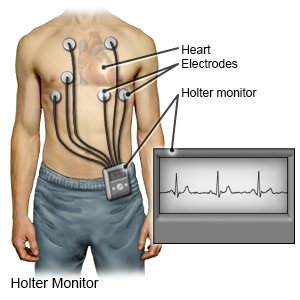Premature Ventricular Contractions
Medically reviewed by Drugs.com. Last updated on Aug 4, 2025.
What are premature ventricular contractions?
Premature ventricular contractions (PVCs) are an interruption in your heart rhythm. They are caused by an early signal for your heart to pump. Your risk of PVCs increases when you drink alcohol or caffeine, or if you are fatigued or stressed. It is very important for you to follow up with your healthcare provider so the cause of your PVCs can be diagnosed and treated.
What are symptoms of PVCs?
- A skipped heartbeat
- A fast heartbeat
- Chest pain
- Lightheadedness, dizziness, or faintness
- Tiredness with exercise or activity
How are PVCs diagnosed?
Your healthcare provider will ask if you have a family history of heart problems. You may also need one or more of the following:
- An EKG records your heart rhythm and how fast your heart beats. It is used to check for PVCs.
- A Holter monitor is a device that you wear for a period of time. It records how fast your heart beats, and if it beats in a regular pattern. You may need to wear it up to 72 hours. This will show how frequent your PVCs are during your normal daily activities.

- An echocardiogram (echo) is a type of ultrasound that shows the movement and blood vessels of your heart on a monitor.
Related medications
How are PVCs treated?
Your treatment will depend on the cause of your PVCs. You may need any of the following:
- Heart medicine may be given to make your heart beat at a regular rate and rhythm.
- Cardiac ablation is a procedure that is used to treat an abnormal heart rhythm. Ask your healthcare provider for more information.
Treatment options
The following list of medications are related to or used in the treatment of this condition.
Call 911 if:
- You have any of the following signs of a heart attack:
- Squeezing, pressure, or pain in your chest
- You may also have any of the following:
- Discomfort or pain in your back, neck, jaw, stomach, or arm
- Shortness of breath
- Nausea or vomiting
- Lightheadedness or a sudden cold sweat
When should I contact my healthcare provider?
- You still have symptoms after treatment, or your symptoms worsen.
- You have questions or concerns about your condition or care.
Care Agreement
You have the right to help plan your care. Learn about your health condition and how it may be treated. Discuss treatment options with your healthcare providers to decide what care you want to receive. You always have the right to refuse treatment. The above information is an educational aid only. It is not intended as medical advice for individual conditions or treatments. Talk to your doctor, nurse or pharmacist before following any medical regimen to see if it is safe and effective for you.© Copyright Merative 2025 Information is for End User's use only and may not be sold, redistributed or otherwise used for commercial purposes.
Learn more about Premature Ventricular Contractions
Treatment options
Symptoms and treatments
Further information
Always consult your healthcare provider to ensure the information displayed on this page applies to your personal circumstances.
